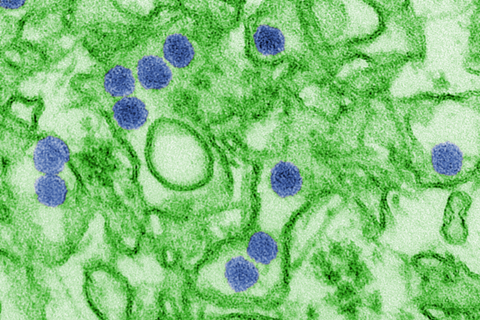A new review was published in Oncotarget’s Volume 15 on September 30, 2024, entitled, “Zika virus and brain cancer: Can Zika be an effective treatment for brain cancer? A systematic review.”

Many studies have identified oncolytic viruses as a promising new class of therapeutic agents for central nervous system (CNS) tumors, particularly glioblastomas (GBM). Zika virus (ZIKV) proteins, specifically targeting certain stem cells, have shown promising results in both in vitro and animal model studies.
READ MORE: Zika virus vaccine emerges as an unlikely hero in battling brain cancer
READ MORE: Zika virus may combat prostate cancer - but study highlights possible side-effect
In their review, researchers evaluated the efficacy and safety of using ZIKV for treating CNS tumors. Data from in vivo studies were extracted and assessed for bias using the Robins-I tool, evaluating factors such as selection, performance, detection, attrition, and reporting bias.
The 14 studies demonstrated that ZIKV reduced cell viability, inhibited the growth and proliferation of glioma stem cells (GSCs), and decreased Bcl2 expression, potentially enhancing chemotherapy and radiotherapy effects. ZIKV caused cytopathic effects, induced tumor cell damage, showed oncolytic properties, and selectively killed GSCs safely. This ultimately led to significant tumor remission and improved long-term survival through an enhanced T-cell response.
“Current evidence suggests ZIKV as a promising treatment for CNS tumors and may improve survival when combined with surgery and radiotherapy. Despite limited human evidence, it shows potential benefits. Further research is needed to confirm safety, efficacy, and optimize treatment in humans,” the authors said.
Topics
- Atenas University Center
- Bcl2 expression
- Beatriz Rodrigues Messias
- Cancer Microbiology
- central nervous system tumors
- glioma stem cells
- José do Rosário Vellano University
- Mateus Gonçalves de Sena Barbosa
- Nove de Julho University
- One Health
- Pharmaceutical Microbiology
- Rafael Trindade Tatit
- Research News
- School of Medicine-University of São Paulo
- The Americas
- University of Israelita de Ciências da Saúde Albert Einstein
- University of Sapucaí Valley
- Zika Virus







No comments yet